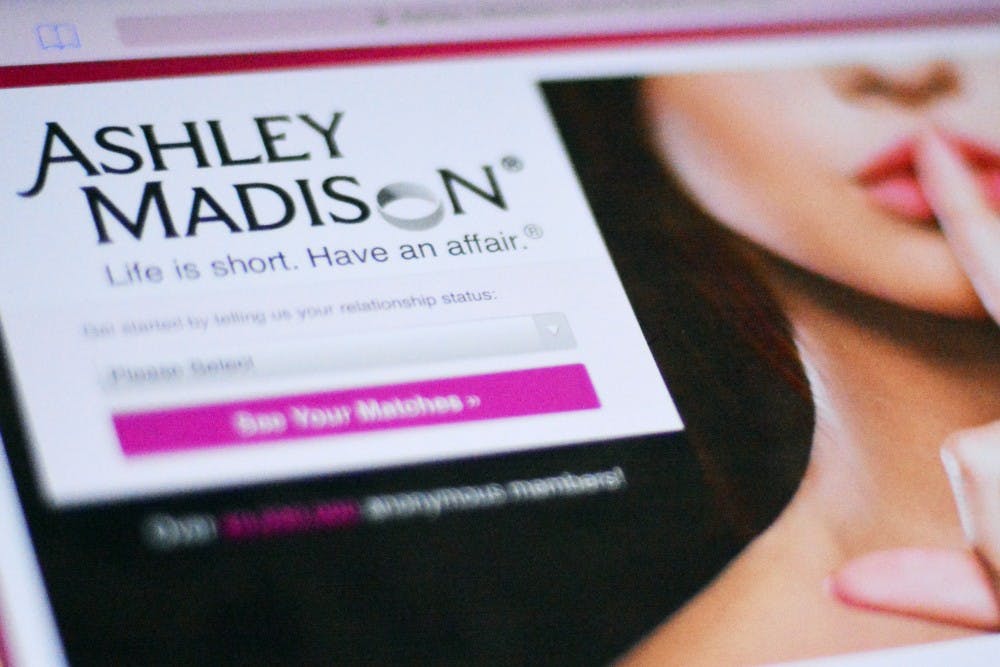
Randal Olson, a data expert doing research at Penn, does not believe information from the Ashley Madison leak should be analyzed and calls the reliability of the data itself into question.
Credit: Irina Bit-BabikMany surprising statistics have come from over 30 gigabytes of private information that hackers leaked from the extramarital affair website Ashley Madison: among America’s top colleges, Cornell has the most registered emails; of the largest tech companies, IBM employees top the charts.
Since the release of over 35 million Ashley Madison accounts, media and data analysts have been searching for high profile names and drawing conclusions. The data website dadaviz.com can tell you everything from which cities have the highest number of registered users to how many accounts are linked to official government email addresses.
But one data expert from Penn does not believe information from the leak should be analyzed. Randal Olson, a postdoctoral researcher at Penn, says the reliability of the Ashley Madison data is in question — anyone could sign up with a .gov email and pretend to be President Obama himself.
Even if the data is verified, Olson still believes it is unethical to analyze the information. “These people did everything on that website with the assumption that it would be private, and they have in no way said that it’s okay to analyze them,” Olson said. “They gave no consent to be researched, and it’s not our position to apply our morals to their relationships and personal lives.”
Controversy arises, however, from Ashley Madison users who claim to have taken the moral high ground. Recently, former Executive Director of the Family Research Council and TV star Josh Duggar, who is an outspoken opponent of same-sex marriage, was revealed to have had an account for almost two years. Sam Rader, another popular conservative Christian video blogger, also paid for an Ashley Madison account.
While the exposure of such high-profile individuals’ possible involvement in extramarital affairs has gone viral, Olson says being famous isn’t a good enough reason to violate someone’s privacy.
“Just because they are public figureheads and public leaders in their groups doesn’t mean they deserve to be targeted any more than a random person,” Olson said.
He added that another major problem with using the Ashley Madison information is that many of the conclusions have been drawn by data amateurs — “renegade scientists,” as he called them — who are improperly trained to do such research.
Olson said that data amateurs receive viral attention for their incorrect conclusions. He cited one recent case of a mistaken analysis implicated Vatican officials in the Ashley Madison scandal. It turned out to be Virginians who simply forgot the .gov part of their email address.
“It’s silly things like that, where we’re besmirching the name of the Vatican on a completely wrong analysis,” Olson said.
Plenty of experts disagree with Olson’s view on the Ashley Madison data. Jishai Evers, founder of the data publishing website dadaviz.com, believes that as long as the conclusions are taken with a grain of salt, responsible data analysis is acceptable.
The ethical question doesn’t just fall to professionals — because the Ashley Madison data is available online, anyone with an Internet connection can access the leaked data. As Wall Street Journal columnist Jeff Yang wrote: this hack “may be an extinction-level event for privacy as we know it.”
The Daily Pennsylvanian is an independent, student-run newspaper. Please consider making a donation to support the coverage that shapes the University. Your generosity ensures a future of strong journalism at Penn.
DonatePlease note All comments are eligible for publication in The Daily Pennsylvanian.








